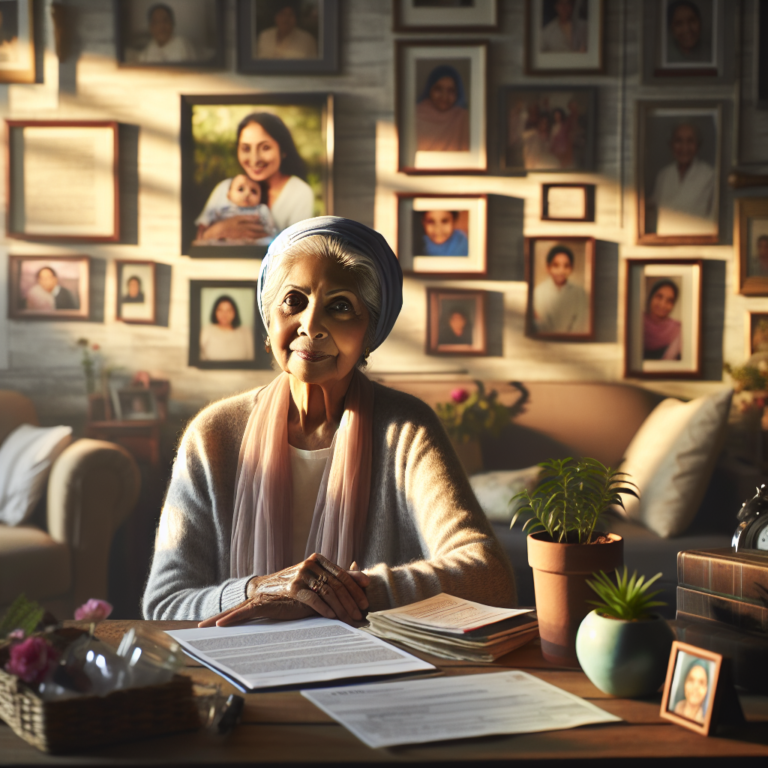How a Simple Routine Physical Turned into a Life-Saving Discovery

John Moisan’s Journey Through Pancreatic Cancer: A Story of Resilience and Advocacy
In December 2010, John Moisan’s life took an unexpected turn. What began as a peaceful retirement quickly transformed into a rigorous caregiving role when his wife suffered a significant stroke. This shift not only altered their family dynamics but also profoundly impacted John’s health. He faced numerous challenges, including stress and declining well-being, prompting a drastic reevaluation of his lifestyle.
The Road to Diagnosis
Fast forward to June 23, 2014—John visited Dr. Thomas Huber, his family physician, for a routine check-up. Feeling fit and active, he was surprised when Dr. Huber expressed concern over his recent weight loss. Despite John’s insistence that he felt fine, Dr. Huber recommended a CT scan to rule out any underlying issues. Within days, John received life-altering news: he had been diagnosed with pancreatic cancer.
- Immediate Action Required: Dr. Huber emphasized the urgency of the situation, advising John to seek care at the Sanford Cancer Center in Sioux Falls.
Surgical Intervention: A Pancreatectomy
On July 2, John arrived at the cancer center, where he underwent a series of assessments. A biopsy confirmed the presence of adenocarcinoma in the tail of his pancreas. With surgery scheduled for July 10, John faced the prospect of a laparoscopic distal pancreatectomy, which ultimately involved the removal of 60% of his pancreas along with his spleen.
- Surgical Details:
- Procedure Duration: 4.5 hours
- Cancer Stage: IIb
- Lymph Nodes Examined: 12 (5 tested positive for cancer)
Following surgery, John experienced complications, including a pancreatic pseudocyst, which required further intervention with stents to manage fluid drainage.
Confronting Cancer with Chemotherapy and Radiation
John’s treatment plan included a rigorous chemotherapy regimen. Starting September 2, 2014, he underwent 13 weeks of Gemzar (gemcitabine) therapy, which was manageable with only mild side effects. However, in January 2015, he faced more intense treatment with chemoradiation for six and a half weeks.
- Treatment Schedule:
- Chemotherapy: 3 weeks on, 1 week off
- Radiation: Daily sessions for 6.5 weeks
Despite experiencing side effects from the radiation, John maintained his commitment to caregiving and continued exercising when possible.
Surviving and Thriving After Cancer
After completing his treatments in June 2015, John received encouraging news—there was no recurrence of cancer. Initially monitored every three months with CT scans, he now has evaluations every six months. His ongoing commitment to fitness played a crucial role in his recovery, demonstrating the importance of physical health in battling cancer.
- Key Takeaways:
- Regular scans and blood work to monitor CA 19-9 levels
- Staying active and maintaining a healthy lifestyle
John attributes his survival to a combination of faith, the support of family, and the expertise of his medical team. To give back, he actively participates in raising awareness about pancreatic cancer as the chair of a local advocacy committee.
Empowering Others: John’s Advice for Cancer Patients
John’s journey has equipped him with invaluable insights, which he shares to inspire others facing similar battles:
- Build a strong rapport with your healthcare provider; if they don’t listen, seek another opinion.
- Don’t hesitate to explore multiple opinions; your life is paramount.
- Be discerning when researching information online; knowledge is a powerful ally in the fight against pancreatic cancer.
- Advocate for yourself; ask informed questions about treatment options.
- Consider participating in clinical trials to aid research efforts.
- Maintain hope; perseverance is essential, and preparation is wise—organize your affairs and communicate with loved ones.
- Investigate your family history for pancreatic cancer and pursue genetic testing if necessary.
John’s story is a testament to resilience and the human spirit. He reminds us that while fear is a natural response to a cancer diagnosis, it shouldn’t define our journey.
For more on John’s advocacy efforts and his experiences with pancreatic cancer, you can watch his interview with Sioux Falls television station KELO here. Additionally, check out the October 24, 2018, news report about the Capitol being lit purple for pancreatic cancer awareness here.






